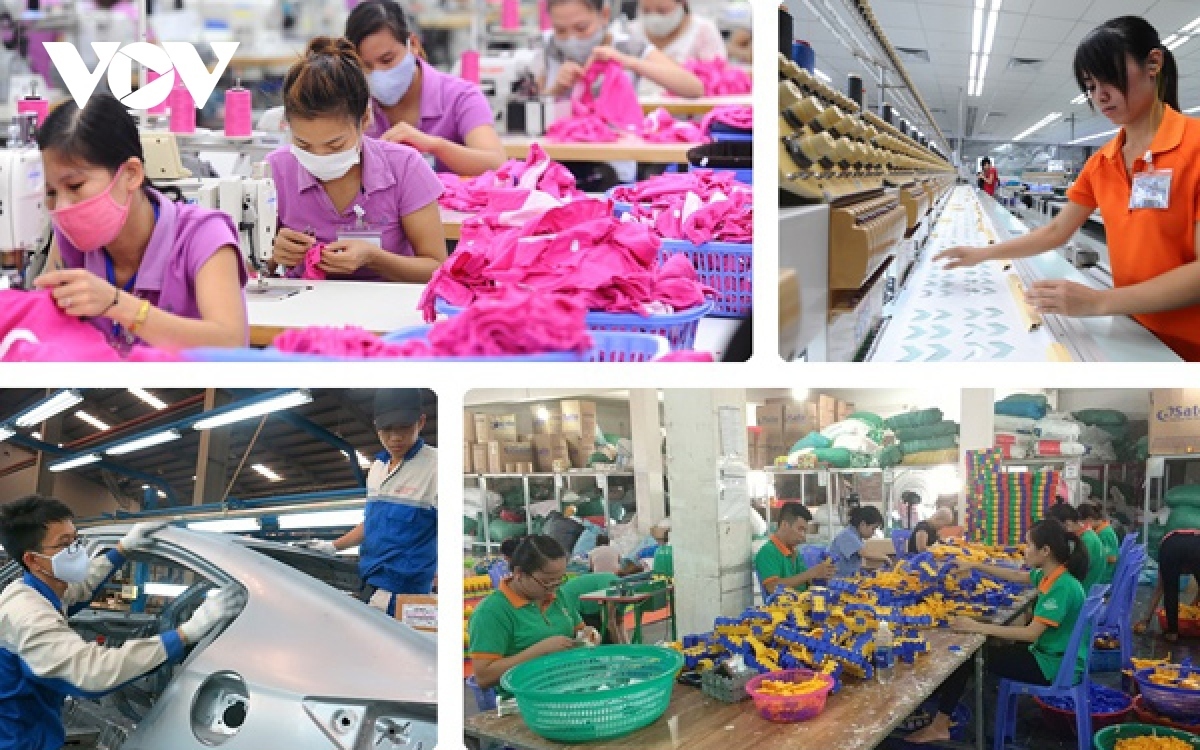Chinese media gives 10 reasons to invest in Vietnam
VOV.VN - Several Chinese websites such as Sina and Sohu recently published an article detailing 10 reasons why firms should invest in Vietnam.
The 10 reasons given by Chinese online media sites include favourable geographical location, stable politics, open-door policy for foreign businesses, and a constantly improving business environment coupled with gradually-improving infrastructure. This is in addition to a highly-skilled young workforce, relatively low costs, a developed economy, unexploited rich natural resources, improved legal environment, and increasingly deeper international integration.
Titled "10 reasons to invest in Vietnam", the article says that Vietnam is a developing countries which boasts an annual growth rate of over 7%.
With rich resources, potential talent, and preferential mechanisms, the nation has brought many opportunities to foreign investors, with the article encouraging immediate investment into Vietnam if businesses do not want to miss the extremely valuable profitable opportunities.
The article highlights Vietnam as a country with a preeminent location, a mild climate, easy investment, and development, with this being a wise choice for foreign businessmen.
With its unique location, the nation can serve as a launching pad and base for one of the most densely populated regions in the world, the total population of ASEAN plus China, Japan, and the Republic of Korea, an area which exceeds two billion people.
According to the article, political stability represents one of the main factors attracting investors to the country. Indeed, the more stable the political situation is, the faster the economic growth trend.
This represents an advantage that not all countries in the world have, it stresses
While other countries around the world are still struggling with COVID-19, Vietnam has now fully resumed normal business activities and has become one of the first places to diversify its supply chain. Therefore, foreign investors are in the process of considering the nation as a potential post-pandemic investment destination.
The piece emphasises that Vietnam always moves to change its investment regulations and continues to carry out preferential policies, such as corporate income tax exemption and reduction, import tax exemption for some industries, and land rental exemption in order to attract more foreign financiers.
Furthermore, recent years has seen the local business investment environment continuously improve in the direction of openness, transparency, and compliance with international standards.
Indeed, the country has actively participated in a series of multilateral and bilateral free trade agreements, thereby providing added impetus for foreign investors from developed countries.
According to the article, along with the improvement of economic development policies, the nation has increasingly improved its technical infrastructure facilities to ensure guaranteed quality, not only in major cities, but also in different regions throughout the country.
Regarding human resources, the piece states that the local labour force is currently assessed as a young labour force, with the labour price being very competitive compared to the wider region.
Most Vietnamese workers have good job skills and are highly adaptability to the working environment.
Vietnamese workers are typically young, highly skilled, and have a good working ethic. They are well educated and are willing to work in high-skill industries, such as information technology, pharmaceuticals, and financial services at low costs that are more competitive than other regional nations.
The article praises the country’s remarkable development over the past three decades, stating that from 2002 to 2018, the nation’s GDP per capita grew by 2.7 times.
Moreover, the Vietnamese economy recovered in 2021 thanks to its strong foundation and relative capacity to contain the COVID-19 pandemic.
Along with rich natural resources, especially the large number of untapped rare earth mines in the northern provinces such as Cao Bang, Lao Cai, Dien Bien, and Yen Bai, the article also notes the marked improvement of the Vietnamese legal and institutional framework.
Accordingly, the country’s management institutions are highly appreciated for their open business environment, as well as their transparent investment policies and incentives to help businesses make profits.
Finally, according to the article, the policy of "multilateralisation and diversification" of international relations has helped the nation to integrate more deeply into the global and regional economy, a move which has helped to ramp up trade and investment co-operation with countries around the world.
More importantly, the nation has improved the local business environment, turning integration into development opportunities.

